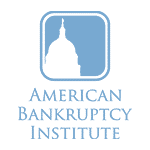
Chapter 11 Subchapter V Bankruptcy Attorney
Contact Us Today
Chapter 11 Subchapter V Bankruptcy Lawyers Serving Philadelphia, Bucks, Montgomery, and Delaware Counties
Chapter 11 Subchapter V of the bankruptcy code provides for the reorganization of businesses that have been overburdened by debt. The debtor gets a chance to propose a plan to reorganize the business to keep it alive as it pays creditors over time. Besides, the debtor remains in control, has both the powers and duties of a trustee, can continue operating the business, and may borrow more money with the approval of the court. This article provides a guideline for small businesses that would like to reorganize under Subchapter V of the Chapter 11 bankruptcy code in Pennsylvania. At Cibik Law the experienced business bankruptcy attorneys are here to help get your business back on the right financial foot.
Learning the Definitions: What is Chapter 13 Bankruptcy?
Chapter 13 bankruptcies are often called reorganization bankruptcies. Chapter 13 bankruptcies are frequently used to stop mortgage foreclosure or lower the applicant’s overall monthly expenses. When an applicant files for Chapter 13 bankruptcy, he or she can repay mortgage arrears and begin to repay unsecured debt. At the end of the Chapter 13 bankruptcy process, most of the applicant’s unsecured debts will be eliminated, and he or she can begin with a fresh financial start.
What is the Difference Between Chapter 7 and Chapter 13 Bankruptcy?
Chapter 7 bankruptcies are called liquidation bankruptcies because the bankruptcy trustee will liquidate or sell the applicant’s assets to pay off debt. In a Chapter 7 bankruptcy, the applicant will not need to make monthly payments over three to five years. Instead, the trustee will liquidate the applicant’s assets, pay off as much data as possible, and then wipe out the remaining debt at the end of the process.
In Chapter 13 bankruptcies, the applicant must keep paying their balances according to the court’s instructed repayment plan. After the plan is completed, the court will typically discharge all unsecured debts. There are also different eligibility requirements, and many people who do not qualify for a Chapter 7 bankruptcy choose to file a Chapter 13 bankruptcy.
Eligibility Requirements for Chapter 11, Subchapter V in PA for Small Business Owners
Small business owners who would like to benefit from this chapter must meet strict requirements. Here are the requirements:
- The business must have a cumulative debt equal to or below $2.7 million. The CARES Act debt expansion to $7.5 million ended in March 2022, and the cap reverted to the earlier figure.
- Single-asset real estate debtors are ineligible for bankruptcy.
- The debtor should be engaged in business or commercial activities.
- At least 50% of the debt should be from commercial or business activities.
- Debts to insiders and affiliates are not counted in determining the 50% threshold for business debts.
- If the debt is over the set cap, it must be unliquidated and contingent. Contingent means that this liability relies on an extrinsic event that may never occur in the future. On the other hand, unliquidated means that the debt depends on future discretion but not on a specific criterion.
- The creditors’ challenge to a debtor’s filing of a subchapter V bankruptcy is included when making an eligibility claim at the court of law.
Benefits of Hiring a Subchapter V Bankruptcy Attorney
1. Automatic Stay
A subchapter V bankruptcy lawyer enables you to get an automatic stay against repossessions and auctioning when you make your bankruptcy application. They ensure that you follow the process exactly and that all forms are correctly filled out in order for you to receive the automatic stay.
2. Creditor Payment Plan
The lawyer helps the small business owner create a repayment plan agreeable to the creditors. They use their negotiation skills to get a plan that works for both the creditors and the business. This reduces the chances that creditors will challenge it in court.
3. Debt Discharge
At the end of your repayment plan (which is between three and five years), the Chapter 11V bankruptcy attorney will help ensure that you have been discharged from your debts. He deals with any issues regarding the repayment plan that may give rise to legal challenges.
Process of Subchapter V Filing
Here are the steps a small business takes in a Chapter 11 Subchapter V bankruptcy application.
1. Filing a Petition
Start by filing a petition for Subchapter V bankruptcy by filling in the necessary documents. After the petition goes through, the rest of the steps below must be completed within 90 days of filing the petition.
2. Meeting of Creditors
There will be a court-appointed bankruptcy trustee that will spearhead the interaction with debtors. A meeting with debtors will look at the debt repayment plan and work out the proposals for common ground. This is where the final draft will be created.
3. Confirmation of Plan
Once the final plan has been agreed upon, it must be filed with the court for confirmation. The law requires the filing to be done within 90 days of the filing of the petition. From here, the small business must then meet obligations as set forth in the plan.
Conclusion
Subchapter 5 of Chapter 11 bankruptcy gives small businesses a lifeline when overwhelmed by debt. It also gives them a chance to continue operating even if they are unable to pay all the debts at once. A Chapter 11 Subchapter V lawyer can help ensure that the filing is done right and negotiations are agreeable with all creditors.
Cibik Law, PC is a bankruptcy law firm that operates in Philadelphia, PA. We help people file for bankruptcy protection under federal law in PA and NJ. Our lawyers provide superior, cost-efficient, and value-oriented legal services in a compassionate and respectful manner to thousands of clients across the state. Contact us for assistance.










